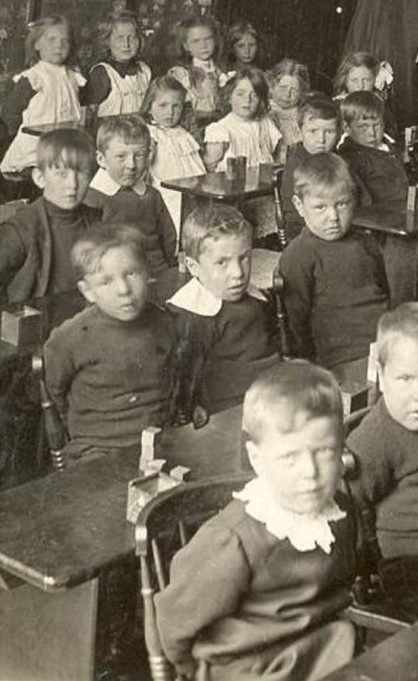In a remarkably short span of time, American children went from laboring on family farms to spending their days in classrooms. The change came from optimistic reformers like Horace Mann, who in the early 1800s dreamed of education, literacy, and science spreading throughout all levels of American society. But other supporters of universal education had darker motives. They feared the influx of Irish Catholic immigrants and thought they’d bring their papist ideas to the young republic. Only compulsory education could break these European children of their Catholic ways and transform them into obedient, patriotic Americans with a Protestant outlook in their worldview if not in their theology.
This episode explores the origins of compulsory education, from the Protestant Reformation (and how it was used as a weapon in the religious arms races of sixteenth-century Europe), Prussia’s role as the first nation with universal schooling, how America adopted compulsory K-12 education, and whether modern-day schools are actually based on a factory from the 1800s.
BIBLIOGRAPHY
“A Brief History of Education.” Psychology Today. http://www.psychologytoday.com/blog/freedom-learn/200808/brief-history-education.
Ball, Stephen J. Foucault and Education: Disciplines and Knowledge. Routledge, 2013.
Foucault, Michel. Discipline and Punish: The Birth of the Prison. Vintage Books, 1977.
Gatto, John Taylor. Weapons of Mass Instruction: A Schoolteacher’s Journey Through the Dark World of Compulsory Schooling. New Society Publishers, 2010.
Gray, Peter. “American Public Education: An Origin Story.” Education News (blog), April 16, 2013. http://www.educationnews.org/education-policy-and-politics/american-public-education-an-origin-story/.
Melton, James van Horn. Absolutism and the Eighteenth-Century Origins of Compulsory Schooling in Prussia and Austria. Cambridge University Press, 2003.
Meyer, John W., David Tyack, Joane Nagel, and Audri Gordon. “Public Education as Nation-Building in America: Enrollments and Bureaucratization in the American States, 1870-1930.” American Journal of Sociology 85, no. 3 (November 1, 1979): 591–613.
Mondale, Sarah, and Sarah B. Patton. School: The Story of American Public Education. Beacon Press, 2001.
Mr. Mann’s Seventh Annual Report: Education in Europe, 1844.
Pécaut, Felix. Educational Writings of Horace Mann: Containing Contributions to the Common School Journal and Addresses of the President of Antioch College with an Appendix Containing a Review of Horace Mann’s Work and Wirtings. Lee and Shepard Publishers, 1891.
Rose, Joel. “How to Break Free of Our 19th-Century Factory-Model Education System.” The Atlantic, May 9, 2012. https://www.theatlantic.com/business/archive/2012/05/how-to-break-free-of-our-19th-century-factory-model-education-system/256881/.
Ross, William G. “Pierce after Seventy-Five Years: Reasons to Celebrate.” University of Detroit Mercy Law Review 78 (2001 2000): 443.
Watters, Audrey. “The Invented History of ‘The Factory Model of Education’.” Hack Education, April 25, 2015. http://hackeducation.com/2015/04/25/factory-model.
Cite This Article
"From Farm Fields to Classrooms: Horace Mann’s War for Universal and Compulsory Education for Children" History on the Net© 2000-2024, Salem Media.
April 20, 2024 <https://www.historyonthenet.com/farm-fields-classrooms-horace-manns-war-universal-compulsory-education-children>
More Citation Information.






